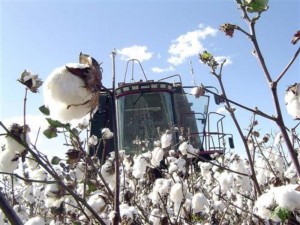Bloomberg | 15 April 2010
By Gemma Daley
April 15 (Bloomberg) -- Chinese investment in Australian farms increased 10-fold in the past six months, real estate agents said, as Australia relaxed rules governing residential property purchasing and buyers see opportunities in agriculture.
“They are interested in large scale cattle farms, they are cashed up and see a financial opportunity here in a secure investment environment,” said Geoff Hickson, real estate manager at Landmark Operations Ltd. “There has been a big increase from Chinese buyers in the past six months, it has grown 10-fold.”
Companies like Landmark now use Mandarin translators, said Hickson, who last week showed Chinese potential buyers a 1,000- acre (405-hectare) cattle ranch near Mackay, in Queensland state. The interest in farms mirrors a trend in China’s demand for minerals that helped the Australian economy avoid recession during the global financial crisis.
Australia’s agriculture industry represents about 12 percent of the A$1.21 trillion ($1.1 trillion) economy and the country has some of the largest farms in the world. Anna Creek, a South Australia state cattle ranch measuring 23,677 square kilometers (9,142 square miles) or almost the size of Belgium, is its biggest.
“Interest from Chinese buyers has gained at least 10-fold and we sold a Queensland cotton farm last week for A$15 million to Chinese buyers,” said John Burke, an agent specializing in country properties for rural services company Elders Ltd. “Chinese are wealthy and they are looking for a secure investment in beef, cotton and grain properties.”
Trading Partner
China is Australia’s largest trading partner, buying A$83 billion worth of goods and services from the world’s biggest exporter of coal and iron ore in the year ended June 30, 2009. Chinese investment in Australian resources has soared as demand rises in the world’s fastest growing major economy.
The Australian Competition and Consumer Commission yesterday cleared Royal Dutch Shell Plc and PetroChina Co.’s A$3.5 billion bid to acquire Arrow Energy Ltd. The purchase, the latest Chinese investment in Australian minerals and energy, needs Foreign Investment Review Board approval.
The FIRB in 2008 relaxed rules for foreign investment in residential properties. That has seen overseas investment rise and house prices soar, according to real estate agents. House prices nationally have gained 14.4 percent, with a 22.5 percent increase in Melbourne and 14 percent in Sydney, according to RP Data figures.
Shut Out
“The increase in interest from overseas buyers, particularly Chinese, has been huge since the changes in foreign investment rules,” said David Airey, president of the Real Estate Institute of Australia. “That has translated into tremendous price increases, shutting a lot of Australian buyers out of the market, and it has seen an increase in interest for rural properties.”
Increased investment could make some farm owners anxious, said Warren Truss, leader of the opposition rural-based National Party. Some communities are concerned buyers are interested in mineral deposits under the farms, such as coal, rather than their agricultural production, he said.
“My concern would be government-owned entities in the market and what is their motivation,” Truss said in a phone interview.
Reserve Bank of Australia Governor Glenn Stevens said on March 26 the central bank was monitoring how the FIRB changes affected the housing market.
“The question of the role of foreign purchasers is an important one, and it’s one that we’re giving some attention to,” Stevens said, according to a transcript on the central bank’s Web Site.
The jump in house prices was among reasons Stevens boosted the benchmark interest rate this month for the fifth time in six meetings to 4.25 percent. A surge in foreign buyers may also hurt the government’s efforts to make dwellings more affordable.
To contact the reporter on this story: Gemma Daley in Canberra at [email protected]












